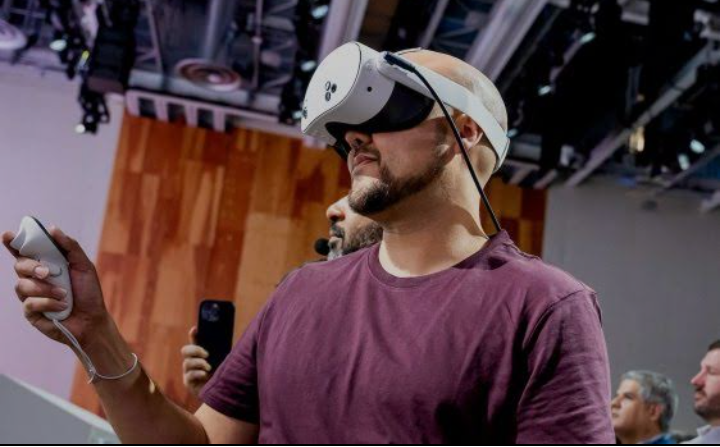Meta, the tech giant formerly known as Facebook, is making significant strides in the realm of education technology. By partnering with renowned universities in the U.S. and U.K., Meta aims to redefine the learning experience through the power of virtual reality (VR) and mixed reality (XR).
A New Era of Immersive Learning
The Meta for Education beta program is a pivotal step towards integrating VR into mainstream education. By providing educators with access to interactive and engaging content across various subjects, Meta seeks to transform traditional classrooms into dynamic virtual learning environments. This innovative approach has the potential to enhance student engagement, comprehension, and retention.
Key Features of Meta's Educational Initiative:
- Interactive Content: Immersive experiences that bring history, science, and other subjects to life.
- Personalized Learning: Tailored educational experiences that cater to individual student needs.
- Collaborative Learning: Virtual spaces for students to collaborate, share ideas, and work together on projects.
- Accessibility: Remote learning opportunities that break down geographical barriers.
Metaversities: The Future of Campus Life
Meta's "metaversity" program takes immersive learning to the next level by creating digital twin campuses. These virtual replicas of real-world universities offer students the chance to attend classes, interact with peers, and explore campus life, all from the comfort of their own homes.
Benefits of Metaversities:
- Flexible Learning: Students can access lectures and resources 24/7.
- Global Collaboration: Virtual campuses facilitate international student exchange and collaboration.
- Enhanced Student Experience: Immersive simulations and virtual field trips provide unique learning opportunities.
Challenges and Considerations
While Meta's vision for the future of education is inspiring, there are challenges to overcome:
- Technical Limitations: Ensuring seamless VR experiences requires robust infrastructure and advanced hardware.
- Accessibility: Making VR technology accessible to all students, regardless of socioeconomic background, is crucial.
- Pedagogical Shifts: Educators need training and support to effectively utilize VR in their classrooms.
The Road Ahead
Meta's commitment to educational innovation is evident in its ongoing investments in VR and AR technologies. As the company continues to refine its products and partnerships, the potential for transformative learning experiences is immense. By addressing the challenges and capitalizing on the opportunities, Meta can help shape the future of education.


إرسال تعليق